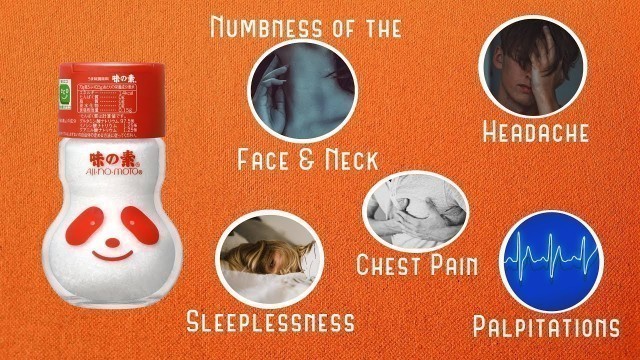

'Headaches, chest pains, numbness of the neck and face, nausea and sleeplessness are some of the \"alleged\" symptoms of an MSG allergy. But is there any truth to it? In this video, we’ll discuss if you can be allergic to VeTsin or MSG. Someone once mentioned to me that they have an MSG allergy. This was frankly the first time that I have heard of such thing so I was quiet incredulous, especially since the symptoms that were described to me sounded like they just had too much salt. But I didn’t want to dismiss their claim and so I wanted to see if there was any validity to this, uhm, quote unquote “condition”. MSG or mono sodium glutamate was created in Japan in 1908 by scientist and Professor Kikunae Ikeda. He was curious as to what it was in the soup that his wife prepared for him made it extra delicious. When she explained that she made the broth using a base of dried konbu or kelp, he came up with the idea to extract that flavor and produce it. As we now know, he was able to successfully do so and went on to commercially produce and distribute his product with the creation of Ajinomoto, which literally means \"quintessence of flavor\". Professor Ikeda called this 5th flavor as ‘umami’ – a combination of two Japanese words – “umai”, meaning “delicious” and “mi” meaning taste. The industrialization of America paved the way for the popularity of MSG in the US as the country moved towards mass food production. From the mid-1930s to 1941, the United States was the biggest consumer of MSG, second only to Japan, with Campbell’s Soup Co. as one of its biggest importer – the key ingredient to their soups is – you guessed it – MSG. MSG, these days, though, are made from molasses and tapioca starch derived from sugarcane and not from seaweed. What makes food so yummy when we add MSG to it is that the glutamate intensifies the umami taste and enhance the complex flavors of meats, poultry, seafood, and vegetables. The glutamate, or glutamic acid, that we find in MSG can also be found to be naturally occurring in food such as meat, ripe tomatoes, grapes, asparagus, cheeses such as Parmesan and Roquefort, sausages and mushrooms. Even humans produce glutamates and our body uses it for different organ functions. This idea of being allergic to MSG started in the 1960s to what was then called “Chinese Restaurant Syndrome” after an American doctor wrote a letter to the New England Journal of Medicine claiming to have experience symptoms of numbness in the back of neck and a feeling of pressure in the face and upper chest muscles. He pointed to MSG as the culprit of these symptoms as they only seem to occur after eating at Chinese restaurants. Nowadays, scientist and medical professionals have come to view “Chinese Restaurant Syndrome as a pejorative term and have renamed it as MSG symptom complex with symptoms that include headaches, sweating, flushing, numbness of the face and neck, palpitations, nausea, chest pain and sleeplessness. So is there any truth to this demonization of MSG? The bottom line is that no large scale, double-blind, placebo-controlled research has shown any link to these symptoms with MSG. Clinicians and scientists, though, still warn against consuming large quantities of MSG as high concentrations of it may still affect people for a short period of time, especially as the stabilizing agent in MSG is salt. And those who feel the symptoms described above might have “food intolerances” rather than food allergies. Thankfully, a food intolerance is less serious and often limited to digestive problems and so it is highly suggested that they try to avoid those food that they ingested prior to the occurrence of the symptoms.'
Tags: food allergy , msg , umami , monosodium glutamate , ajinomoto , msg side effects , chinese restaurant syndrome , MSG allergy , MSG intolerance , Does MSG Allergy Really Exist , Can you have an MSG allergy , vetsin , msg allergy symptoms
See also:

















comments